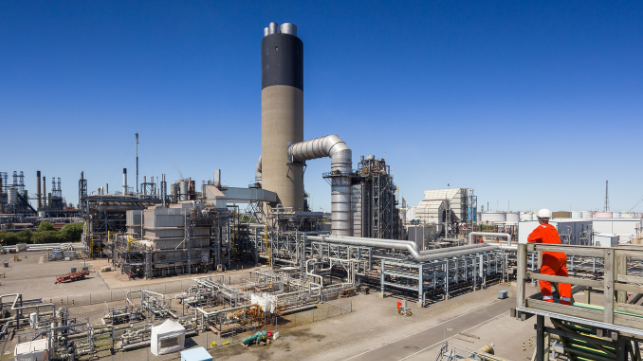Oil Firm Chrysaor Applies for Offshore CO2 Storage License

Oil company Chrysaor, the largest producer on the maturing UK Continental Shelf, has applied for a license to store captured CO2 in an undersea gas reservoir in the North Sea.
Chrysaor's application dovetails with the Humber Zero Project, an initiative to capture CO2 from industrial sources in the UK's Humber region. The VPI Immingham combined heat and power plant, the Phillips 66 Humber refinery and the Uniper Killingholme Power Plant have agreed to invest in carbon capture technologies on select industrial process units. The engineering consultancy Wood is working on the concept and early design for the infrastructure. In a three-phase development program, the CCS plant would capture and compress as much as eight million tonnes of carbon dioxide per year. A related project, V Net Zero, will handle the transportation and undersea storage.
"The V Net Zero project and Chrysaor’s licence application represent an important and exciting step toward delivering net zero in the Humber by offering advantaged CO2 storage sites at scale to Humber
Zero and other emitters in the wider industrial cluster.”said VPI Inningham project director Jonathan Briggs. "It can establish the foundation for a gateway to decarbonise the wider Humber, bringing new industries, sectors and jobs to the region."
Carbon storage efforts under way
The new effort parallels a similar development in Norway - a partnership between Total, Equinor, ArcelorMittal and Heidelberg Cement to capture industrial CO2 emissions and store the gas in a geological formation under the sea. This giant CCS project will capture carbon from a cement plant in Brevik and a waste-to-energy powerplant in the Oslo area.
The logistics for storage are somewhat more complex for the Norwegian venture. The CO2 will be compressed, liquified and transported by ship to a marine terminal on Norway's west coast. It will then be piped under the sea to an offshore storage site, where it will be injected into a geological formation for permanent encapsulation. In March 2020, Shell, Total and Equinor completed a test well for CO2 storage near the Troll field on the Norwegian continental shelf. They found a sealing shale layer and the presence of good quality sandstone in the reservoir, Equinor said, confirming its suitability for carbon storage.
The Norwegian government is subsidizing this venture with a $2.4 billion investment - the largest single state aid award ever approved by the European Free Trade Association (EFTA).
